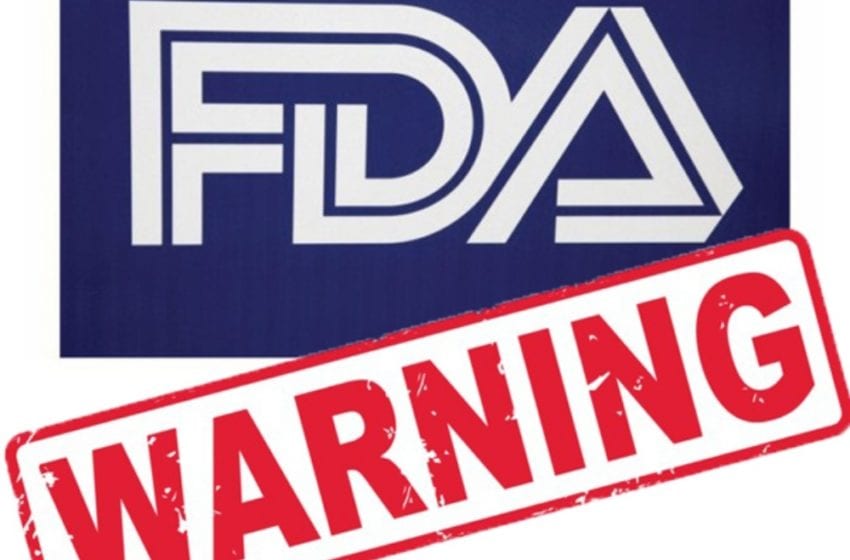The U.S. Food and Drug Administration has issued a warning letter to Visible Vapors. The regulatory agency advised the company that marketing its electronic nicotine-delivery system (ENDS) products, which lack a premarket tobacco product authorization (PMTA), is illegal, and therefore they cannot be sold or distributed in the U.S. The FDA states that the company did not submit PMTAs by the Sept. 9, 2020 deadline.![]()
While the warning letter issued cites specific products as examples, including Visible Vapors Irish Potato 100mL and Visible Vapors Peanut Butter Banana Bacon Maple (The King) 100mL, the company has more than 15 million products listed with FDA, and must ensure all of its products comply with federal rules and regulations, which include the premarket review requirement, according to the letter. Visible Vapors has the largest number of products registered with the FDA to have received a warning letter to date.
From January through July 2021, the FDA has issued more than 135 warning letters to firms selling or distributing more than 1,470,000 unauthorized ENDS and that did not submit premarket applications by the Sept. 9 deadline. On FDA’s Warning Letters page, you can find these warning letters by searching “Center for Tobacco Products” under “Issuing Office.”
The FDA often only lists a few products that a company is selling as illegal in the letter. It then states that there may be more, but it is impossible to know if the warnings encompass all the company’s registered products. The agency states that it is the responsibility of the company to only sell products with a submitted PMTA. Companies have until Sept. 9, 2021 to sell product unless the agency makes a decision on the PMTA approval or grants an extension.
Companies that receive warning letters from the FDA have to submit a written response to the letter within 15 working days from the date of receipt describing the company’s corrective actions, including the dates on which it discontinued the violative sale, and/or distribution of the products. They also require the company’s plan for maintaining compliance with the FD&C Act in the future.

